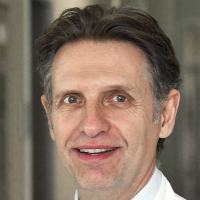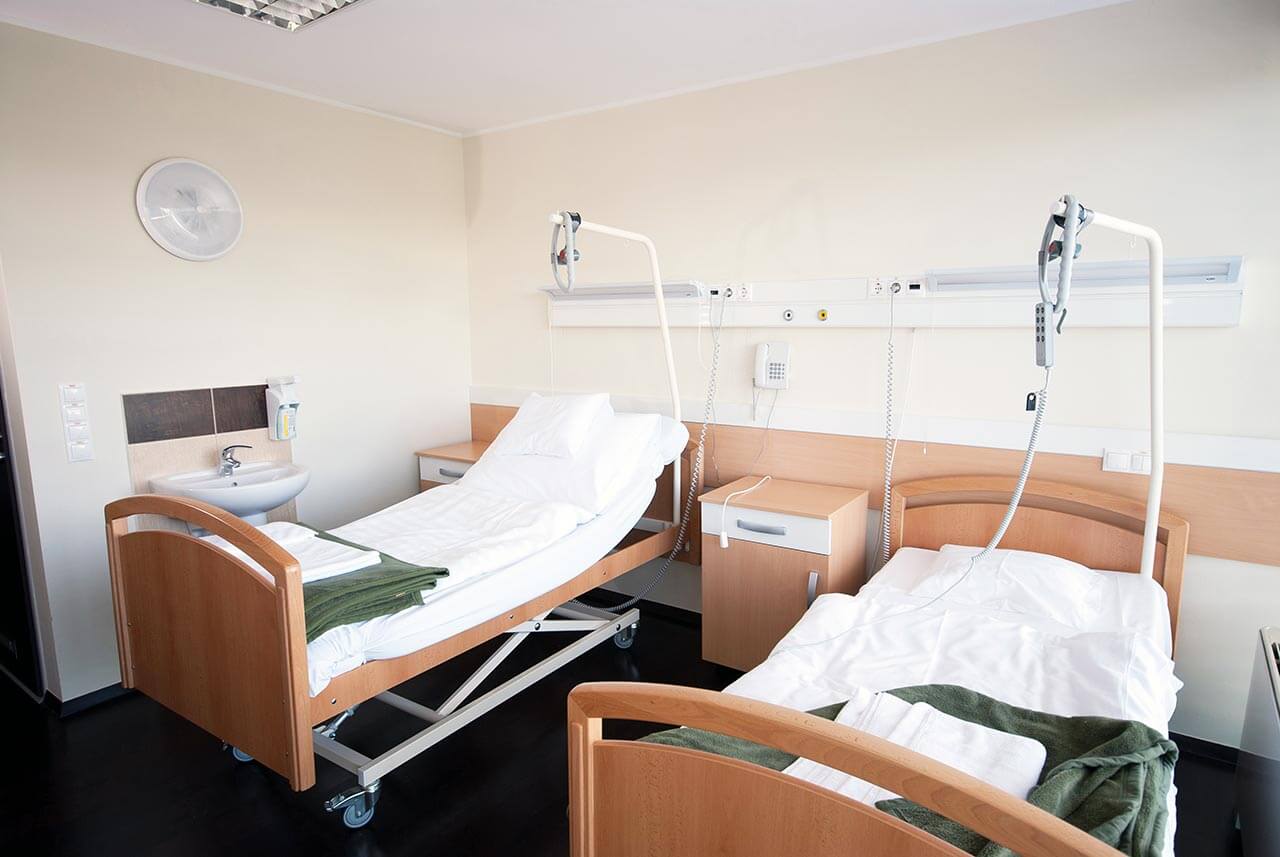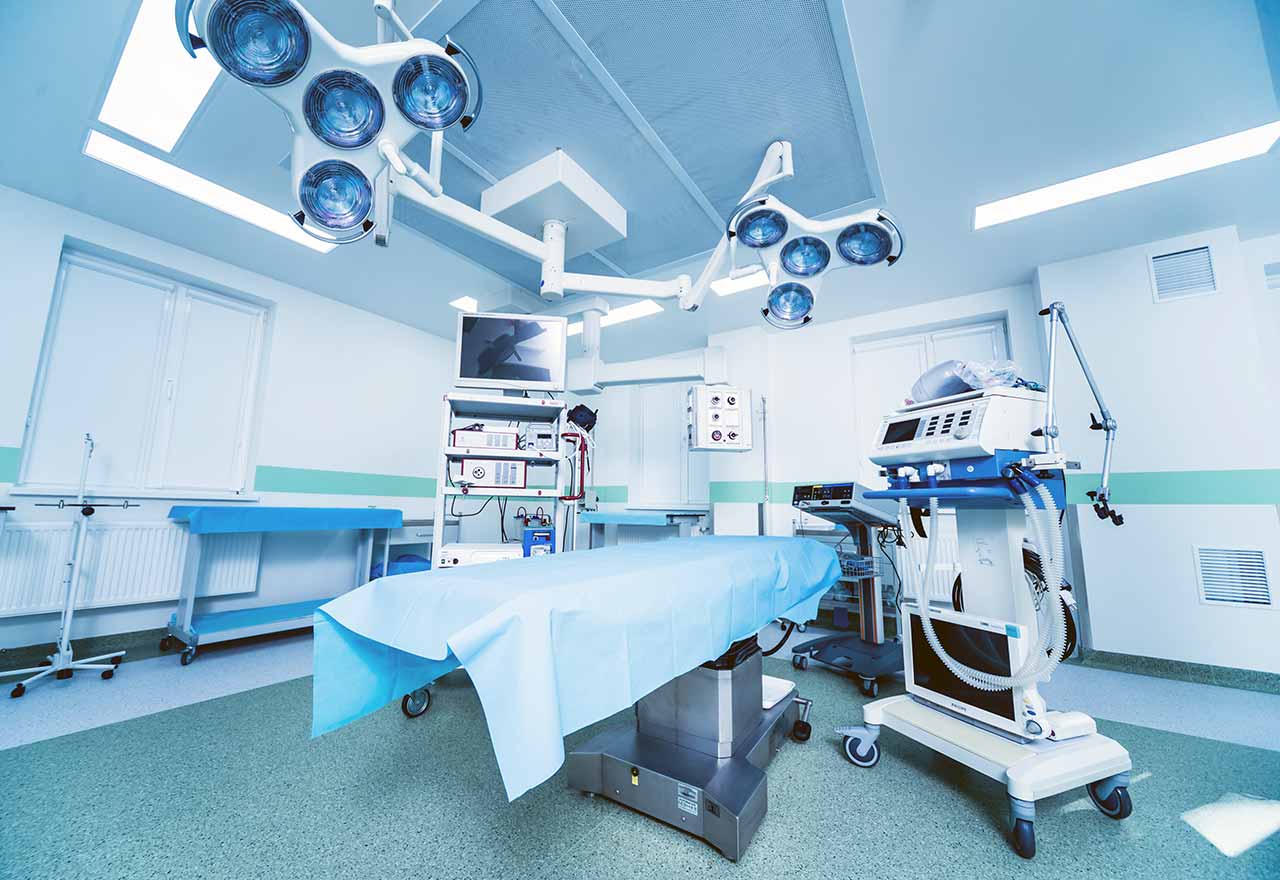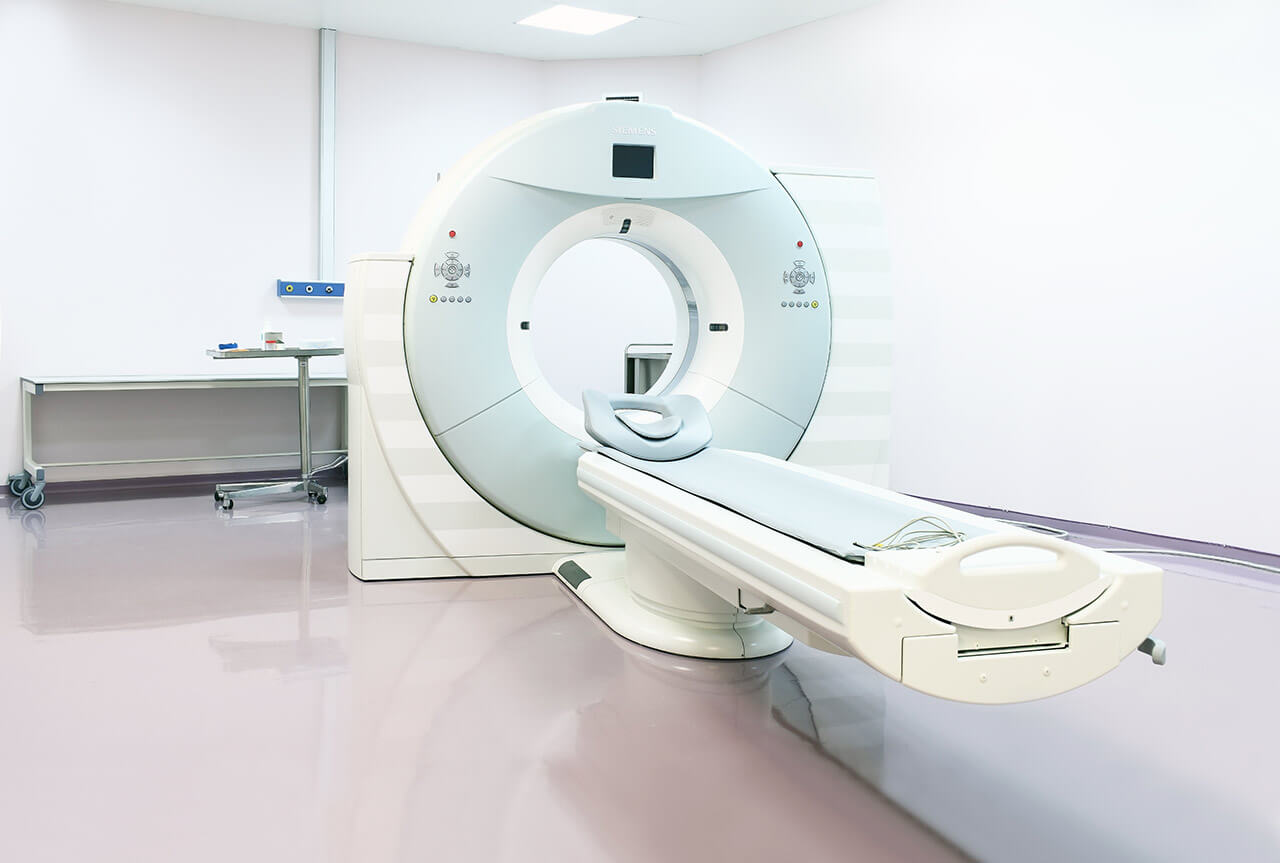
About the Department of Gastroenterology, Hepatology and Endocrinology at HELIOS University Hospital Wuppertal
The Department of Gastroenterology, Hepatology and Endocrinology at the HELIOS University Hospital Wuppertal offers the widest range of services in the areas of its specialization and is one of the largest medical facilities of this kind in Germany. The team of the department's doctors carries out high-precision diagnostics and effective treatment of diseases of the gastrointestinal tract, liver and biliary tract, as well as endocrine glands. The department's therapeutic offer also includes the provision of medical care to patients with type I and II diabetes mellitus. The gastroenterologists of the medical facility have at their disposal a specialized Section for Endoscopy and Sonography, where they perform a variety of diagnostic and therapeutic procedures: color and pulsed Doppler ultrasonography, liver elastography, esophagogastroduodenoscopy, colonoscopy and capsule endoscopy, argon plasma coagulation, polypectomy, endoscopic mucosal resection, biliary stricture balloon dilatation and others. In addition, the department has a Section for Gastrointestinal Functional Diagnostics. The department has 80 beds. The medical facility provides treatment to more than 4,800 inpatients every year, and many patients receive outpatient medical services. The Head Physician of the department is Prof. Dr. med. Christian Prinz.
The department's primary focus is on the diagnostics and treatment of digestive diseases. The doctor studies the patient's medical history and listens to his complaints during the first consultation, after which he prescribes the necessary set of laboratory tests and ultrasound scans. If the results of ultrasound examination do not allow making an accurate diagnosis, the attending physician plans further diagnostic measures – endoscopic procedures. Depending on the specific indications, the department carries out endoscopic examinations such as esophagogastroduodenoscopy, colonoscopy, double balloon enteroscopy for examining the small intestine, small bowel capsule endoscopy, endoscopic retrograde cholangiopancreatography, chromoendoscopy for early detection of gastrointestinal neoplasms, etc. Whenever required, the diagnostic plan also includes tomographic imaging tests: CT and/or MRI. The department's specialists have vast experience in the field of their competence, and therefore they guarantee high accuracy of diagnosis and effectiveness of further treatment. The therapy regimen is developed on an individual basis, taking into account the specific clinical case and the patient's health status. If possible, the treatment of gastrointestinal diseases begins with modern pharmacotherapy. Nevertheless, it is impossible to get rid of some pathological gastrointestinal conditions exclusively with the help of medications. In such cases, the department's gastroenterologists consider the option of endoscopic therapy. The patients of the department are offered all types of modern endoscopic procedures, including measures to stop bleeding, resection of benign neoplasms and malignant tumors at the early stages, elimination of stenosis of the intestine, esophagus and other digestive organs, removal of bile duct stones, etc.
The department is part of the Colon Cancer Center certified by the German Cancer Society (DKG). The department’s specialists recommend patients to undergo regular preventive colonoscopy that helps them to detect colon polyps (precursors of colon cancer) and remove them using endoscopic techniques. However, if the patient seeks medical care in the advanced stages of cancer, more extensive surgery is required (laparoscopic interventions are performed, if clinically indicated). In addition, the treatment protocol for advanced colon cancer usually includes chemotherapy and radiation therapy. The patients also receive effective palliative care for pain management at the advanced stages of cancer.
An equally important focus of the department's clinical practice is on the treatment of liver and biliary tract diseases. The doctors of the medical facility pay special attention to the treatment of viral and autoimmune hepatitis, cholestatic liver lesions, fatty liver disease, cystic liver neoplasms, benign and malignant liver tumors, as well as liver cirrhosis. The area of responsibility of the department's hepatologists includes pharmacotherapy and endoscopic therapeutic procedures. In complex clinical cases, the patient may require surgery, which is performed in collaboration with abdominal surgeons.
Endocrinologists of the medical facility admit patients with diseases of the endocrine glands: thyroid gland, parathyroid glands and adrenal glands. The department's doctors also specialize in the treatment of type I and II diabetes mellitus. To diagnose endocrine disorders, hormone tests and ultrasound scanning are sufficient in most cases. The treatment involves the use of various pharmacotherapy regimens. The treatment tactics are adjusted in accordance with the patient's needs and wishes.
The department's range of diagnostic and therapeutic services includes:
- Diagnostics
- Ultrasound examinations
- B-mode sonography
- Doppler ultrasonography (color and pulsed)
- Contrast-enhanced ultrasound
- Liver elastography (for diagnosing fibrosis)
- 3D fusion sonography with CT or MRI
- Fine needle aspiration biopsy and ultrasound-guided needle biopsy
- Endoscopic examinations
- Esophagogastroduodenoscopy
- Colonoscopy
- Double balloon enteroscopy for examining the small intestine
- Small bowel capsule endoscopy
- Endoscopic retrograde cholangiopancreatography
- Chromoendoscopy for early detection of tumors, including virtual chromoendoscopy using FICE or NBI technology
- Endosonographic examinations
- Endosonographic elastography
- Contrast-enhanced endosonography
- Color duplex endosonography
- Functional diagnostics
- Hydrogen breath tests to diagnose intolerance to fructose, lactose, sorbitol, glucose, lactulose, etc.
- 24-hour pH metry
- Esophageal impedance pH monitoring
- Esophageal manometry
- Full range of laboratory tests in the field of gastroenterology, hepatology and endocrinology
- Ultrasound examinations
- Treatment
- Pharmacotherapy with modern medications
- Ultrasound-guided interventional procedures
- Percutaneous ethanol injections for the treatment of early stages of liver cancer
- Sclerotherapy for liver cysts
- Interventional procedures under the guidance of ultrasound and other imaging devices
- Puncture and drainage (for example, for abscesses, pseudocysts)
- Portal vein embolization prior to liver resection (in collaboration with radiology specialists)
- Endoscopic interventional procedures
- Hemostasis (arrest of bleeding)
- Injections, including histoacryl
- Clipping
- Stopping massive arterial bleeding using the OTSC clipping system
- Argon plasma coagulation for angiodysplasia
- Resection of benign and malignant gastrointestinal tumors at the early stages
- Polypectomy
- Endoscopic mucosal resection
- Endoscopic submucosal dissection
- Closure of perforations using the OTSC clipping system
- Balloon dilation and bougienage for stenosis (for example, esophageal, bowel stenosis)
- Implantation of self-expanding metal stents for stenosis (for example, esophageal, duodenal, colon stenosis)
- Endoscopic placement of feeding tubes into the stomach or small intestine for percutaneous feeding (PEG, PEJ)
- Endoscopic retrograde cholangiopancreatography
- Gallstone removal
- Implantation of plastic or metal stents for stenosis
- Balloon dilatation for bile duct stenosis
- Electrohydraulic lithotripsy with cholangioscopic guidance
- Percutaneous cholangioscopy with bile duct stone removal
- Endoscopic retrograde cholangiopancreatography using the rendez-vous technique
- Extracorporeal shock wave lithotripsy for crushing pancreatic duct stones
- Hemostasis (arrest of bleeding)
- Endosonographic interventional procedures
- Drainage of pancreatic pseudocysts with follow-up implantation of plastic or metal stents
- Tumor marking for radiation therapy using a fiducial marker
- Injection therapy for certain types of tumors
- Other medical services
Curriculum vitae
Higher Education and Professional Career
- 1983 - 1986 Study of Human Medicine, Saarland University, Homburg, Saarland.
- 1983 - 1986 Study of Chemistry, Saarland University, Homburg, Saarland.
- 1986 - 1990 Study of Human Medicine, Technical University of Munich.
- 1991 Admission to medical practice, Technical University of Munich.
- 1990 - 2000 Assistant Physician, University Hospital of Ludwig Maximilian University of Munich and University Hospital Rechts der Isar Munich.
- 2000 - 2010 Senior Physician and Head of the Endoscopy Section, University Hospital Rechts der Isar Munich.
- Since 01.03.2010 Head Physician of the Department of Gastroenterology, Hepatology and Endocrinology at the HELIOS University Hospital Wuppertal and Professor (Head of Department) at the Witten/Herdecke University.
- Since 2015 Head of the Certified Abdominal Cancer Center at the HELIOS University Hospital Wuppertal, as well as Head of the Working Group on Gastroenterology and Hepatology of the HELIOS Hospital Group.
Photo of the doctor: (c) Helios Universitätsklinikum Wuppertal




